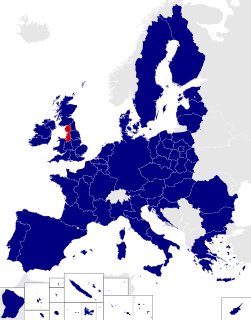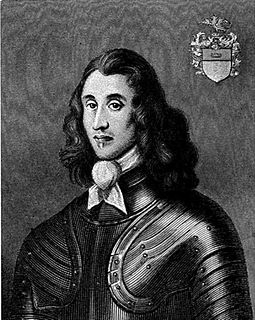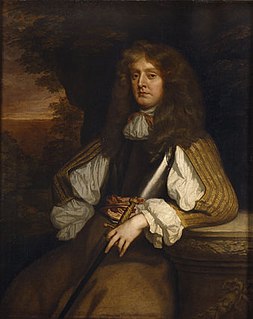
The Commonwealth was the period from 1649 to 1660 when England and Wales, later along with Ireland and Scotland, were ruled as a republic following the end of the Second English Civil War and the trial and execution of Charles I. The republic's existence was declared through "An Act declaring England to be a Commonwealth", adopted by the Rump Parliament on 19 May 1649. Power in the early Commonwealth was vested primarily in the Parliament and a Council of State. During the period, fighting continued, particularly in Ireland and Scotland, between the parliamentary forces and those opposed to them, as part of what is now referred to as the Third English Civil War.

Barebone's Parliament, also known as the Little Parliament, the Nominated Assembly and the Parliament of Saints, came into being on 4 July 1653, and was the last attempt of the English Commonwealth to find a stable political form before the installation of Oliver Cromwell as Lord Protector. It was an assembly entirely nominated by Oliver Cromwell and the Army's Council of Officers. It acquired its name from the nominee for the City of London, Praise-God Barebone. The Speaker of the House was Francis Rous. The total number of nominees was 140, 129 from England, five from Scotland and six from Ireland.
There have been three baronetcies created for descendants of the ancient Lancashire family of Gerard.

Humphrey Chetham was an English merchant, responsible for the creation of Chetham's Hospital and Chetham's Library, the oldest public library in the English-speaking world.
The English Council of State, later also known as the Protector's Privy Council, was first appointed by the Rump Parliament on 14 February 1649 after the execution of King Charles I.

North West England is a constituency of the European Parliament. From the 2009 elections it elects 8 MEPs using the d'Hondt method of party-list proportional representation.
"Oliver Cromwell" is a song recorded by Monty Python in 1980 but not released until 1989 where it featured on their compilation album Monty Python Sings. John Cleese, who wrote the lyric, debuted the song in the episode of the radio show I'm Sorry, I'll Read That Again broadcast on February 2, 1969, where it was introduced as "The Ballad of Oliver Cromwell". It is sung to Frédéric Chopin's Heroic Polonaise, and documents the career of British statesman Oliver Cromwell, from his service as Member of Parliament (MP) for Huntingdon to his installation as Lord Protector of the Commonwealth of England. The lead vocals, often heavily multi-tracked, are performed by John Cleese, with interjections by Eric Idle.
Robert Needham, 2nd Viscount Kilmorey was an English Royalist and supporter of Charles I during the English Civil War.

Charles Worsley was an English soldier and politician. He was an ardent supporter of Oliver Cromwell and was an officer in the Parliamentary army during the English Civil War and the Commonwealth of England. He sat in the House of Commons in 1654 and governed a district during the Rule of the Major-Generals.
Richard Aldborough was an English politician who sat in the House of Commons in 1640. He supported the Royalist side in the English Civil War.
William West was an English politician who sat in the House of Commons variously between 1653 and 1660. He fought on the Parliamentary side in the English Civil War.

Richard Legh was an English politician who sat in the House of Commons variously between 1656 and 1678.
Anthony Rous was an English politician who sat in the House of Commons at various times between 1653 and 1660. He was an officer in the Parliamentary army in the English Civil War.
Robert Cunliffe was an English politician who sat in the House of Commons in 1653
Sir Roger Bradshaigh, 1st Baronet was an English politician who sat in the House of Commons from 1660 to 1679.
The 2014 West Lancashire Borough Council election took place on 22 May 2014 to elect members of West Lancashire Borough Council in Lancashire, England, as part of the wider 2014 United Kingdom local elections and with the United Kingdom component of the 2014 European Parliament election on the same day. One third of the council is up for election.
Richard Fleetwood (1653–1709), of Rossall Hall, Lancashire, was an English politician.






